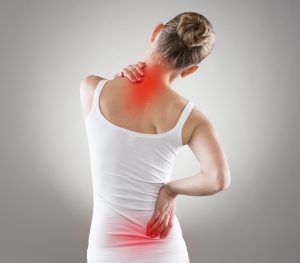Disclaimer: Please consider the following information as a general overview about internal delayed injury rather than medical advice. If you or someone you know is in this situation, consult a lawyer as soon as possible to decide on appropriate actions available to you.
Car crashes are horrifying, terrifying, traumatizing, and more; there are not enough words to describe someone feels in that situation. Even if you walk away without a single scratch, crash accident victims react by seeing life in a new light. Others end up worrying day in and day out.
And in addition to these emotional traumas, car crashes also cause physical damages. You may not feel anything right now, but you may have an underlying physical condition caused by the accident. And this is why you should watch out for any signs of injuries, no matter how small.
Be Sure To Get Checked By A Doctor Immediately
Even if you don’t feel any pain or see any sign of an injury, you should immediately go to the nearest hospital after the accident. Make sure that you get yourself checked by a medical professional. Your doctor is the best person to help you figure out whether you have sustained an injury from the accident. He/she will be able to give you the right advice on what symptoms you be should looking out for.
Getting checked by a doctor is also helpful if you think about going to trial, or seeking compensation for your damages. Plus, a documented medical report is useful when you go to your insurance provider.
If you don’t know about the symptoms of a delayed injury, here are the key signs that you may have an internal delayed injury after a vehicle accident.
Signs You May Have An Internal Delayed Injury
1.) Post- Traumatic Stress Disorder (PTSD)
It’s common for people who are involved in a vehicle accident to have PTSD after. You may not know it, but you may already be suffering from it. You have PTSD if you suffer:
- Having flashes of the incident
- Reliving the accident over and over
- Having nightmares
- Having disturbing memories
If your child was with you during the accident, he/she might also be suffering from this, since children are susceptible to this.
2.) Changes in your physical function or changes in personality
Changes in personality or bodily functions may be a sign of a concussion. It affects how your brain functions, causing it to behave in a way that’s different from the way it should. In short, when you have a concussion, your brain is confused.
You’re suffering from a concussion if you are experiencing:
- Forgetting about some events of your life, including the accident
- Vomiting
- Difficulty with speech
- Difficulty understanding questions
- Hearing ringing in your ears
- Irritability for no reason
- Sensitivity to noise and light
- Disturbances in your sleep
- Depression
3.) Nerve damage
You may suffer from a partial or total lack of feeling or too much pain in one or more of your limbs, which can be a sign of a whiplash injury. You can be suffering from an injury in your spinal column, nerve/nerves or neck.
You’re suffering from numbness if you suffer:
- Muscle atrophy
- Paralysis
- Pain
- Sensitivity
- Lightheadedness
- Constipation
4.) Headaches
It’s common to suffer headaches after being in a vehicle accident. However, you should never ignore headaches, since they can be a sign of blood clot in your brain, injury to your neck, or a severe concussion.
You’re suffering from headaches if you experience:
- Ringing in your ears
- Slurred speech
- Nausea
- Fatigue
- Confusion
5.) Back pain
Your back may be hurting, whether it’s in your muscles, nerves, or ligaments, and no matter how small the pain you’re feeling, you should never ignore it. Your spine is located in your back; its structure is complicated but is not made to withstand any impact from an accident.
You’re suffering from back pain if you experience any of this in that region of the body:
- Dull aching sensation
- Inability to stand up
- Decreased range of motion
- Shooting or stabbing pain
- Abdominal pain or swelling
Abdominal swelling or pain can be a sign of internal bleeding, or that your internal organs have been affected. You’re suffering from abdominal pain or swelling if you experience:
- Dizziness
- Fainting
- Purple bruising
- Can’t keep food down
- Dehydration
- Pain that lasts for a long time
Get Legal Help
If you’re experiencing any of these physical things, you should immediately contact a lawyer such as ones here so you can be sure that a professional is available to guide and help you. The lawyer will be able to represent you when you decide to file for compensation or decide to go to trial.
When you start conversing with your lawyer, be sure that you give him/her the details of the crash. And be sure to be truthful when talking about it. You should also make sure that you show him/her all the pieces of evidence that you’ve collected regarding the accident.
The Bottom Line
An accident is not a happy experience, and no one would ever wish to be part of one. And the aftermath of the crash can be difficult to handle. However, when you get involved in a vehicle accident, even if you’re traumatized and having difficulties when dealing with it, ensure that you’ve done everything that you can do to be sure that you’re physically well.
Be sure to get checked immediately and follow your doctor’s advice. Lastly, be sure to hire a well-versed lawyer who will help get justice for the emotional and physical pain you’re suffering because of the accident.
Vicki Haskett
Vicki is a law writing enthusiast who’s had over 25 years of experience in her field. She enjoys sharing her experiences with those who want to learn more about the legal world. In her spare time she spends quality time with her family and friends.
Recent Posts
- Castor Oil For Better Hair Growth: Is It Myth Or Fact?
- Exploring the Differences Between Sermorelin, Ipamorelin, Ibutamoren, GHRP2, and GHRP6: Understanding Their Role in Human Growth Hormone Regulation
- Unraveling the Mystery: Understanding the Causes and Prognosis of Ventricular Tachycardia Without Apparent Heart Disease
- Understanding Grandparents’ Rights in Oklahoma: Navigating Visitation and Legal Protections
- 10 Reasons to Consider Hypnotherapy for Your Health

